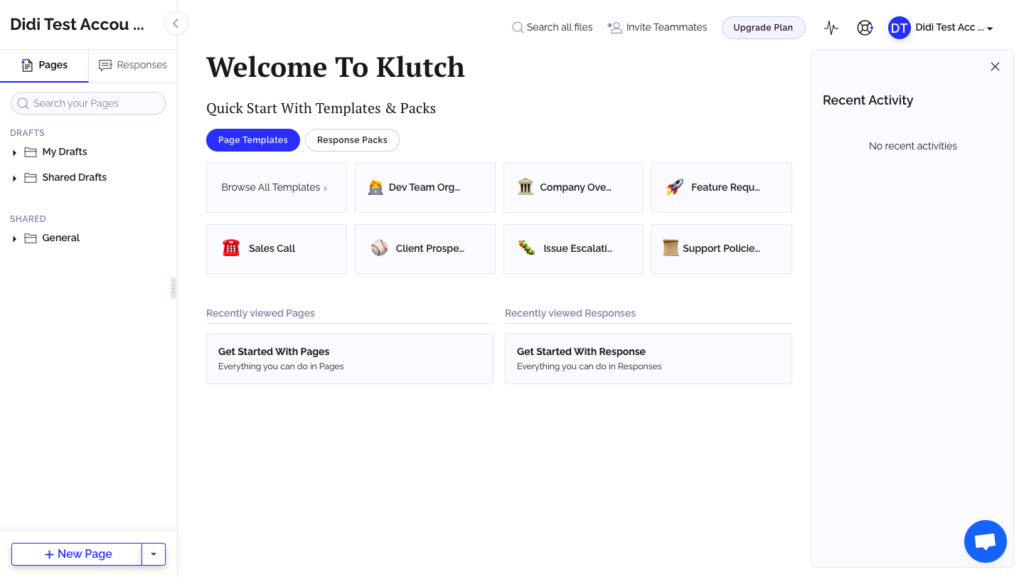Since 80% of knowledge is tacit, employees leaving an organization take most of it with them, which can adversely impact a company’s operation. Organizational information is critical to a business’s success, and implementing systems that support knowledge transfers helps with many different processes.
Some businesses use wikis to store and use key information. Having a central database helps preserve knowledge and saves employees a lot of time and frustration if they want to know something. However, due to several challenges these systems pose, they are quickly becoming obsolete.
Now, businesses are adopting knowledge bases, a superior knowledge transfer system that is not only fast and reliable but also provides seamless integration with existing workflows. Let’s learn more about these online systems and why companies are quick to adopt them.
Describing Traditional Wikis
Similar to Wikipedia, a traditional wiki is a central database that allows companies to store and use key organizational information. Employees can contribute and edit content on a particular topic, which can be about a company’s processes, products, services, or projects.
What Are the Limitations of Traditional Wikis?
The key purpose of adopting traditional wikis for businesses is to ensure that the knowledge is available for the next person who needs it. This can help save a lot of time and eliminate confusion. It may encourage employees to collaborate and learn more.
However, there are a lot of challenges that businesses must overcome to ensure a reliable wiki, including the following:

Unstructured Content
Traditional wikis rely on older software, making it difficult for employees to navigate. Searching for answers to questions can often become frustrating, as these systems use outdated search engines to scan through organizational information that isn’t properly categorized.
Due to unstructured content, employees may find themselves wasting time instead of saving it. This can eliminate the primary purpose of adopting a traditional wiki.
Poor Information Quality
While having a central database that any employee can edit or contribute to can help with knowledge transfer, this collaborative nature of traditional wikis can also lead to poor-quality of information.
A traditional wiki allows anyone to contribute and edit organizational information without any oversight or prior approval. The lack of editorial control can lead to inaccurate knowledge in the database.
Limited Functionality
Not only is a traditional wiki a dumping ground for inaccurate information, but it also lacks the functionality that companies need. Searching through the database, for example, can be challenging due to a lack of structured content.
With analytics, businesses can learn more about their employees and the work challenges they’re facing. This allows them to take the necessary measures to improve the organizational processes. Unfortunately, a traditional wiki does not offer such functionality.
In most cases, traditional wikis exist outside of the workplace. Employees must navigate to and fro between different systems to search for the information they need. This lack of integration with existing apps can adversely impact your team’s productivity.
Low User Engagement
The key challenge with a traditional wiki is properly adopting the system. Employees must effectively contribute, edit, and update information that may be outside of their core responsibilities. Professionals might not be willing to participate in setting up the database due to the extra workload.
What Is a Knowledge Base?
Businesses are moving away from traditional wikis due to their shortcomings and quickly adopting knowledge bases to improve their employees’ productivity and achieve organizational goals.

A knowledge base is an online central repository that companies can use to store and search through verified information. Whenever an employee needs information about a project, service, product, or process, they can refer to a knowledge base to learn more.
Fast-growing businesses, including startups, can use knowledge bases to create structured content on onboarding, organizational processes, internal FAQs, and much more. This can help an employee gain the information they need to overcome the challenges they’re facing.
Advantages of Knowledge Bases
Before understanding the benefits of a knowledge base, it’s important to know how this online resource system is different than a traditional wiki.
While traditional wikis and knowledge bases share a similar collaborative nature, a knowledge base is much more formal, and there is a lot of emphasis on moderation. It may be more time-consuming, but the information stored in the database is reliable.
Here are a few reasons why knowledge bases are replacing obsolete wikis:
Structured Content
Knowledge bases have an advanced categorization and search system. When creating content on a particular topic, an employee must properly categorize it before adding relevant tags. This allows others to search through the database for that specific information easily.
Unlike a traditional wiki, a knowledge base offers superior linking capabilities. Employees can go deeper into a particular topic through the internal links. It helps save time and makes the entire user experience less frustrating.
Enhanced Information Quality
One of the main shortfalls of a traditional wiki is the lack of control over the content generated or published. It can lead to inaccurate information that can adversely impact a team’s productivity and workflow.
With a knowledge base, not everyone has editing rights. This restriction prevents anyone from posting information that may not be verifiable or credible.
By allowing specific people to generate and publish content, a knowledge base ensures up-to-date and accurate information while minimizing the risk of duplicates or factual errors.
Editors or topic experts can review the organizational information in the central database and track any changes made since its publication. Such oversight can help maintain the content’s historical context.
Rich Functionality
A knowledge base provides a wide range of tools to help make it easier to store, use, and edit organizational information. It allows employees to make comments and interact with each other. This not only helps in learning but also fosters positive engagement.
Another benefit of a knowledge base is analytics. Companies can use it to learn more about the most and least visited topics and any content gap. This can help them take necessary measures to address the problems and improve the structure.
A knowledge base can easily integrate with existing apps such as live chat software, ensuring that the employee does not have to seek information outside of their workflow. The customer support team, for example, can address the customers’ concerns by searching through the content without having to move away from the chat.
Businesses can also personalize their knowledge bases. A simple “Was this information useful?” button can let you know whether the content addressed the employee’s concerns or if it needs some revamping.
Improved User Engagement
To ensure active participation and contribution to the knowledge base, you can assign roles and responsibilities. While it may still seem like an extra workload for the employees, there are many features that can make it easy to contribute.
Employees can also interact with each other on a knowledge base system. They can leave comments, ask questions, or follow different authors to stay updated with the latest content.
The ability to interact is particularly useful during a training session. A senior employee, for example, can focus on their daily tasks instead of training the new recruits, as newly hired can learn more about the company by going through the knowledge base. If they have any questions, they can interact with the topic experts and receive reliable information.
Final Thoughts
Traditional wikis have become outdated for many reasons. The lack of analytics, control, and functionality makes the entire system redundant, as it eliminates the purpose of providing fast and reliable information.
Due to the limitations of traditional wikis, businesses are moving away from these systems and adopting knowledge bases. These offer superior functionality, improved user engagement, and better knowledge retention while ensuring accurate and credible information.
If you want your business to grow and succeed, a knowledge base system like Klutch can improve your business’s information management and organizational efficiency. It can help document your company’s valuable knowledge while boosting productivity with customized keyboard shortcuts!



